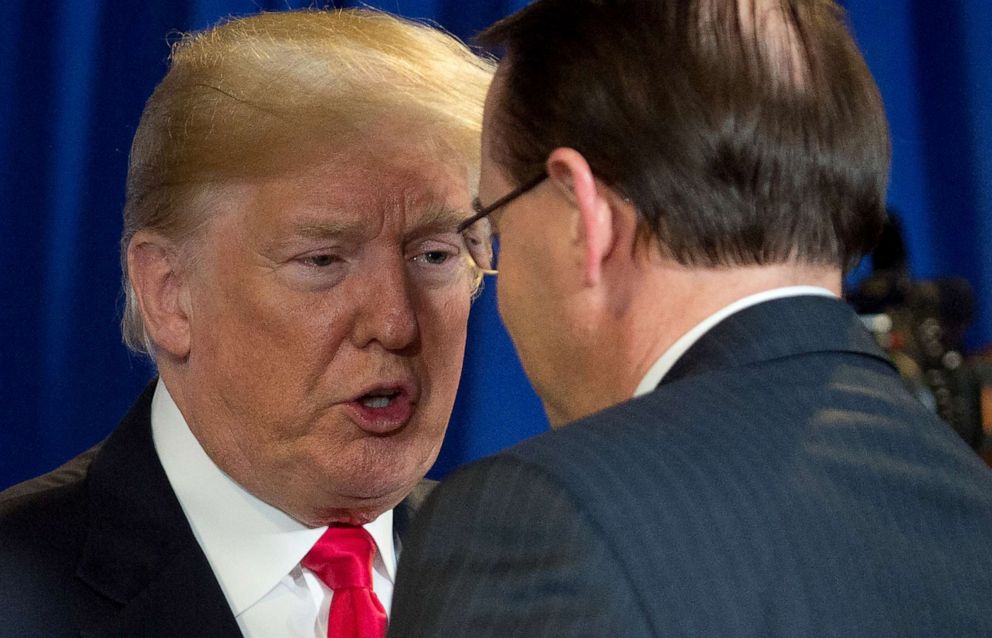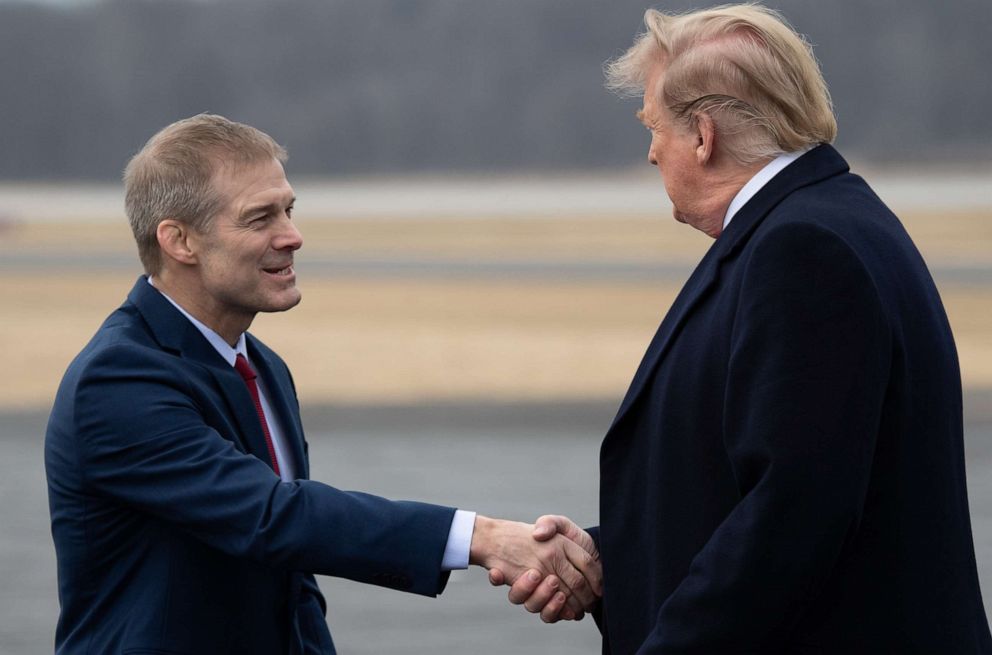As Trump attacked Mueller, he offered mea culpa to Rosenstein, source says
The president didn't go after Rosenstein the same way he went after others.
Four months ago, shortly after President Donald Trump's Twitter account sent out an image suggesting Deputy Attorney General Rod Rosenstein should be prosecuted and imprisoned for appointing special counsel Robert Mueller, the president took the rare step of telling Rosenstein it was a mistake, according to a former Justice Department official informed of the conversation.
As described by the former official, the mea culpa came in a private phone call, within days of Trump retweeting the meme that showed Rosenstein, Mueller and several Obama-era officials behind bars.
"[W]hen do the trials for treason begin?" the Trump-endorsed image asked.
But on the private phone call afterward, Trump insisted to Rosenstein that he didn’t notice the veteran prosecutor in the image's background before it was retweeted, according to the former official.
Publicly, Trump stood by the controversial post.
The previously unreported anecdote reflects how — despite unrelenting attacks on Mueller, Mueller's team and others at the Justice Department — Trump often tried to avoid clashes with Rosenstein, the person who appointed Mueller in the first place.
"There was a healthy respect between the two," Ian Prior, a former Justice Department spokesman under the Trump administration, told ABC News.
"The bottom line," according to Prior, is "despite everybody's concerns" that Trump was trying to derail the Mueller probe, "at the end of the day, he really just let the investigation run its course, and he respected Rosenstein as a person."
Last year, Trump's outside advisers reportedly wanted the president to take a harder public stand against Rosenstein. But appearing on Fox News at the time, Trump's attorney Rudy Giuliani offered this philosophy: "Rod Rosenstein is one of the people in charge of this case, so I'm not going to get involved in critiquing his conduct unless at the end we have to."
As a Trump nominee and long-time Republican, Rosenstein wasn't just overseeing Mueller — he was also in charge of carrying out Trump's political agenda at the Justice Department, organizing federal efforts to fight terrorism, illegal immigration and gang violence.
"[Rosenstein] was able to develop a good rapport with the president on things outside of the Mueller investigation," Prior said.

'A witch hunt'
From the start of Mueller's probe, Trump was more willing to criticize his then-attorney general, Jeff Sessions, than his deputy attorney general.
To Trump's great dismay, Sessions had recused himself from overseeing the growing probe of Russia's meddling in the 2016 presidential election because of his previous work on Trump's campaign, forcing Rosenstein to handle the matter.
At a press conference on May 18, 2017, the day after Rosenstein appointed Mueller, ABC News' Jonathan Karl asked the president for his reaction to "Rod Rosenstein’s decision."
"Well, I respect the move," Trump responded. "But, the entire thing has been a witch hunt."
In the nearly two years since, Trump posted more than 50 messages to Twitter criticizing Mueller specifically or invoking Mueller’s name to attack the investigators looking at alleged ties between Trump's associates and Russian operatives.
Mueller was the face of the investigation and the one driving it, but even Sessions — who had no role in the investigation — was chided by Trump at least 16 times on Twitter.
By contrast, Trump posted three messages targeting Rosenstein by name, according to an ABC News review of online archives cataloging the president's tweets.
At times, Trump even promoted Rosenstein as proof of his own innocence.
Last year, Trump cited Rosenstein’s early push for the removal of then-FBI Director James Comey to dispute growing allegations that Comey’s firing in early May 2017 was intended to stop ongoing FBI investigations.
"How could there be obstruction on firing Comey, when the man who’s in charge of [the investigation] wrote a letter that was far stronger than anything I would have written?" Trump said in a January 2018 interview with the Wall Street Journal.
When Rosenstein then announced charges against 13 Russians for allegedly spreading false information ahead of the 2016 election, Trump highlighted Rosenstein's "news conference" and tweeted this quote from him: "There is no allegation ... that any American was a knowing participant in this illegal activity."





